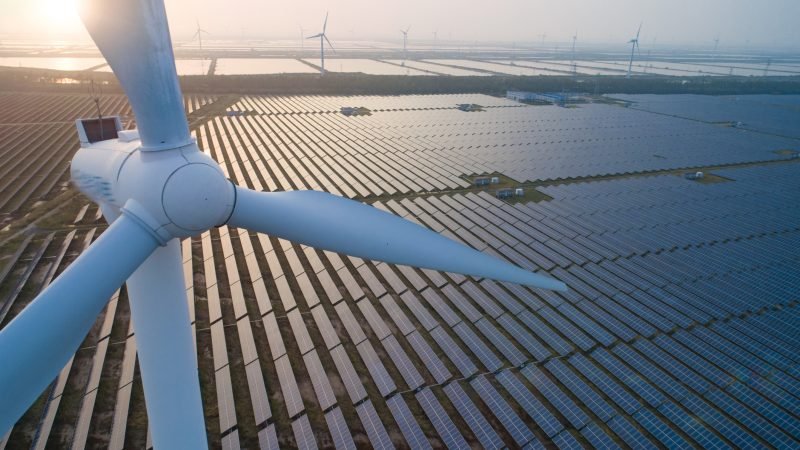Renewable energy continues to grow in the European Union, now ranking as the third most utilized power source across the bloc. Despite a notable reduction in overall energy consumption, energy poverty has emerged as a pressing issue. In 2023, the EU’s energy usage decreased by 4.1% compared to 2022 and by nearly 12% since 2013, reflecting a long-standing trend towards reduced energy demand.
Oil remains the primary energy source in the EU, followed by natural gas, which saw a significant decline in consumption due to the ongoing conflict in Ukraine and efforts to diversify energy supplies. While oil consumption slightly increased, natural gas use dropped sharply. The usage of solid fossil fuels also fell, while renewable sources such as wind, solar, and hydroelectric power expanded steadily. According to Ember’s 2023 analysis, these three renewable sources have overtaken bioenergy and other forms of electricity generation.
The EU’s largest economies—Germany, France, Italy, and Spain—account for 58% of the region’s electricity demand, with Germany leading at 19%. Finland and Sweden top the list for per capita energy consumption, largely due to colder climates and higher levels of electrification.
Since 2005, the EU has improved its primary energy consumption more effectively than its final energy use, largely attributable to the adoption of renewables, energy-efficient technologies, and a shift away from energy-intensive industries. Data from the European Environment Agency indicates that most EU member states reduced their energy consumption between 2005 and 2023. Greece experienced the most significant decline, while Poland and Malta reported increased energy use. Additionally, Bulgaria and Estonia showed the largest reductions in primary energy consumption from 2022 to 2023.
While these reductions help lower emissions and pollution, they also expose the ongoing issue of energy poverty. In 2023, transport accounted for the largest portion of final energy use at 32%, followed by households and industry. Although household and industrial energy consumption has generally decreased, transport use remains inconsistent.
The household sector reflects a troubling disparity. In 2023, the number of Europeans unable to adequately heat their homes reached its highest level since 2021, indicating a rise in energy poverty. Eurostat data for 2024 revealed that 32% of households in Greece reported being behind on utility payments due to financial challenges, significantly higher than the EU average of 6.9%. The Netherlands had the lowest rate at 1.9%. Furthermore, households spending more than twice the median income on energy—identified as having a high energy expenditure share—show a disparity in hardship. Estonia and Hungary report figures just above 10%, while Greece exceeds 28%. The EU average stands at 8.2%.
Poor housing conditions exacerbate these challenges. In 2023, 15.5% of the EU population lived in homes with structural issues like leaking roofs or damp walls, with Cyprus, Portugal, and Spain having the highest rates, while Sweden reported only 4.8%.
As EU energy policies evolve, equity in energy access is gaining importance. Researcher Morgiane Noel emphasizes reforms targeting energy poverty through legislative and financial measures. Updates to the Energy Efficiency Directive now require that a portion of energy savings directly benefits low-income households. These changes aim to improve data collection, focus on building renovations, and provide financial support for energy efficiency upgrades. The Social Climate Fund, initiated in 2021, aims to provide direct financial assistance, such as bill subsidies, and foster green job creation for workers transitioning from fossil fuel industries. However, experts warn that without a unified EU strategy, these initiatives may fall short.
The future of energy in the EU hinges on greater coordination, increased investments, and innovative projects like community energy initiatives and smart grid technologies. Ensuring that all citizens have access to clean and affordable energy is not just a policy challenge; it is essential for fostering fairness and reducing inequality across Europe. If effectively implemented, current measures could significantly alleviate poverty and contribute to a more equitable energy landscape.




